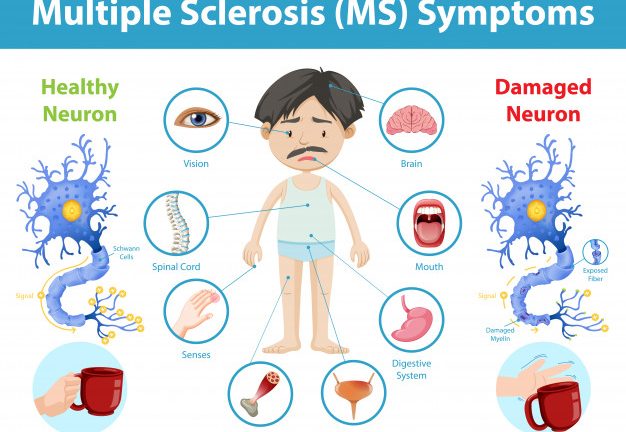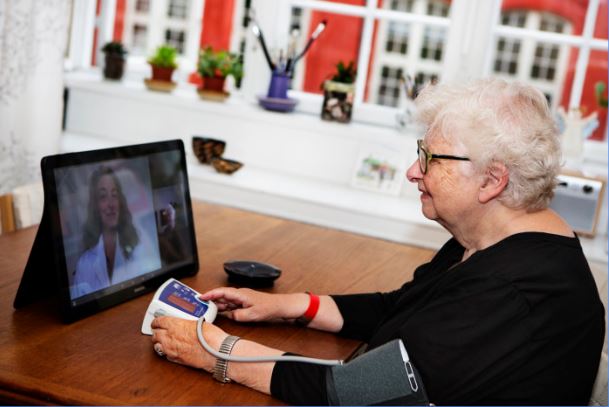Although there is no treatment for multiple sclerosis, it is possible to control its symptoms.
Multiple sclerosis (MS) is a highly damaging brain and spinal cord (central nervous system) disorder. In multiple sclerosis, your immune system destroys myelin, the protective covering that surrounds nerve fibers producing inflammation besides harming the transient lesions. MS can also result in long-term scar tissue, making it difficult for your brain to send messages to the rest of your body.
World Multiple Sclerosis Day
30th of May is World Multiple Sclerosis Day, and brings the MS community from all across the world together to share stories, promote awareness, and campaign for everyone impacted by this complex neurological disorder. Besides accelerating significant advances into MS treatment and providing quality treatment for all MS patients.
The Multiple Sclerosis International Federation (MSIF) initiated World Multiple Sclerosis Day in 2009, intending to bring together people living with MS from all over the world to help them cope with their lifelong condition and improve their quality of life.
Multiple Sclerosis (MS) Symptoms
symptoms may change in their degree of severity. Some of the most frequent MS symptoms are as follows:
- Fatigue- Fatigue is common for about 80 percent of people with MS. Fatigue with MS can make it harder for the affected person to carry on their everyday tasks.
- Difficulty walking- An infected person may experience numbness in their legs and feet, difficulty in balancing accompanied by muscle weakness, and spasticity. Difficulty walking can also multiply the instances of injuries and falls.
- Vision problems- Vision problems are often the initial symptoms seen among people with Multiple sclerosis. Vision problems like optic neuritis, diplopia, involuntary movement of the eyes may affect one or both eyes, which can worsen over time.
- Speech issues- Multiple sclerosis causes lesions in the brain that can affect speech, resulting in slurred speech or observed long pauses between words or syllables or changes in speech volume.
- Other common symptoms of Multiple sclerosis include cognitive troubles involving concentration, memory, and word-finding, difficulty in chewing and swallowing, sleep issues, and problems with bladder control.
Multiple Sclerosis Causes
Multiple sclerosis is an autoimmune disorder in which the immune system targets the body’s tissues, damaging the fatty substance that coats and protects nerve fibers in the brain and spinal cord (myelin). Though it’s unclear why some people develop Multiple Sclerosis and others do not, a combination of hereditary and environmental variables can be the reason behind the development.
Multiple sclerosis has the following risk factors:
Multiple sclerosis Risk factors
These factors raise one’s likelihood of developing multiple sclerosis significantly-
- Age- Multiple sclerosis can develop at any age, but it commonly begins between the ages of 20 and 40.
- Sex- More than two to three times as many women as men suffer from relapsing-remitting MS.
- Family history- You have an increased risk of developing MS if one of your parents or siblings has had this disease.
- Race- White people, particularly those of Northern European ancestry, are the most vulnerable to MS. Asian, African, and Native American people are at the lowest risk.
- Climate- MS is far more prevalent in temperate settings, such as Canada, the northern United States, New Zealand, southeastern Australia, and Europe.
- Vitamin D- Low vitamin D levels and limited sunlight exposure are linked to a higher risk of contracting Multiple sclerosis.
- Certain autoimmune diseases- People with existing autoimmune conditions, including thyroid disease, pernicious anemia, psoriasis, type 1 diabetes, or inflammatory bowel disease, are at a slightly increased risk.
Multiple Sclerosis Complications
People with multiple sclerosis are at a higher risk of developing muscle stiffness or spasms, paralysis- typically in the legs, bladder or bowel dysfunctions, mood swings, depression, and epilepsy.
Multiple Sclerosis Diagnosis
If you or your loved one have experienced any of the symptoms listed above, you may consider a diagnosis with a healthcare professional, like a neurologist. Book a neurologist on the Gigadocs app, talk about your clinical history and request prescriptive tests to check whether or not you have Multiple sclerosis. These diagnostic tests may include an MRI scan, Optical coherence tomography (OCT), Spinal tap (lumbar puncture), Blood tests, and visual evoked potentials (VEP) test.
To know more about these tests, download the Gigadocs app and consult the best neurologists around you over a secure video call from your home.
Download Gigadocs App to Consult the Best Doctors –
- IOS App – apple.co/2W2iG4V
- Android App – bit.ly/33AQoRC
To know more and schedule a Virtual Consultation demo, Email @ info@gigadocs.com.




